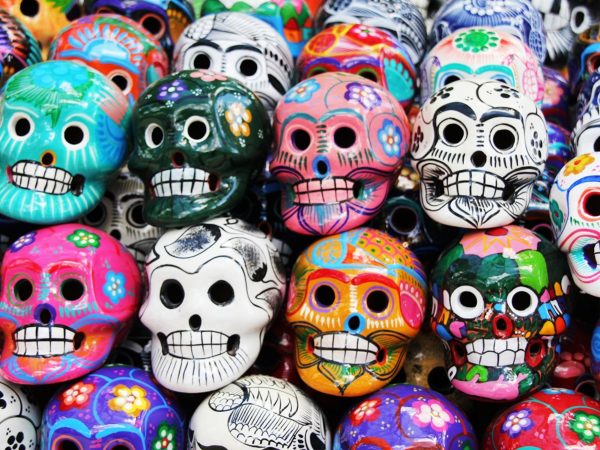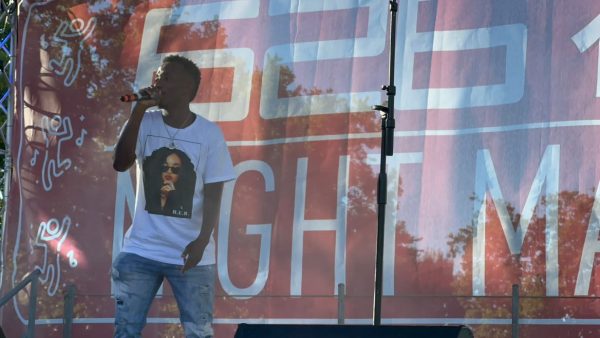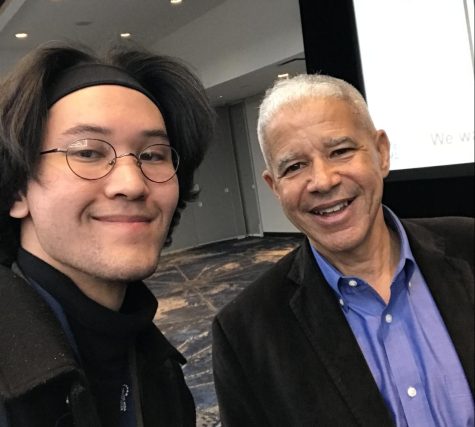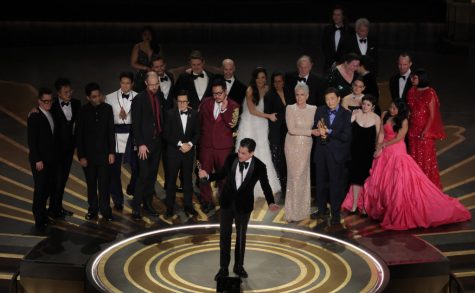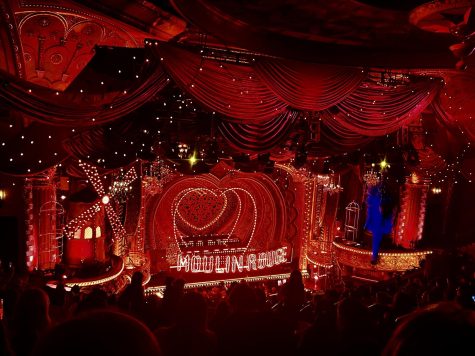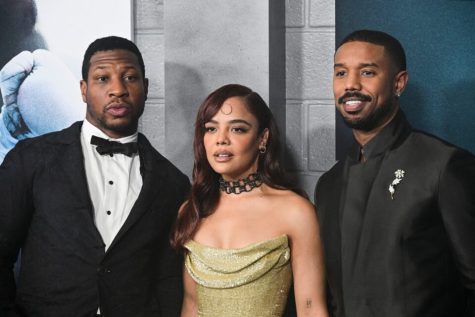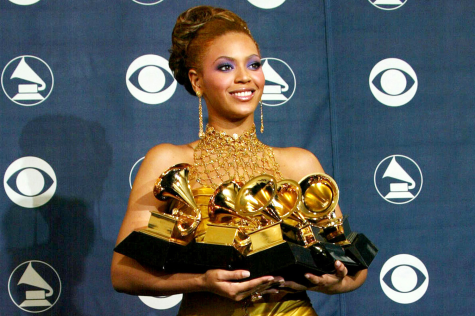Teaching history one kick at a time
August 29, 2019
As one of the newest additions to Netflix’s roster of Originals, Wu Assassins starring Iko Uwais, who previously starred in The Raid: Redemption, and Lewis Tan, of Iron Fist, Wu Assassins had a huge amount of potential. Sadly, most of that potential was wasted.
Wu Assassins is like a love letter to the martial arts films of old that takes itself too seriously. But with its faults, Wu Assassins finds room to shine in the other aspects of the show.
The premise of the show is very simple. Taking place in the underbelly of San Francisco’s Chinatown, the world is in danger as five individuals with powers from ancient warlords converge onto the Bay Area. It is up to Uwais’ character Kai to combat these individuals with his own set of skills bestowed onto him by one of the previous Wu Assassins.
One of the biggest flaws in the show is that it does not take advantage of its greatest strength. As the Wu Assassin, Kai is protected by the faces of 1,000 different monks, each a master of their own martial art respectively. While that alone sounds like the makings of an incredible show, we really only see one of the monks, played by Mark Dacascos, best known for his work as the chairman from Iron Chef America.
Since we know that realistically having 1,000 different martial artists showcased on a ten-episode series is impossible, it is not surprising that we only got a handful. However, since we were only able to see one “master,” it felt underwhelming. If Wu Assassins gets cleared for a season two, then hopefully they explore more fighting styles, as Uwais has proven in his past work that he knows how to carry himself in a fight.
The dialogue also feels lackluster when compared to the fight choreography. At times the dialogue feels forced and is used in a way to push exposition and ignores the overall flow of the episode. For example, Kai’s mentor Ying Ying, who is responsible for teaching Kai how to use his powers, only talks about his responsibilities as the savior of the world. Normally, that wouldn’t be a problem, however, Ying Ying uses the same lines repeatedly to a point where it feels redundant and dry.
Akin to Netflix’s other Original with a mostly Asian cast, Always Be My Maybe, Wu Assassins also takes place in the Bay Area, mostly San Francisco and some parts of Oakland. While it is possibly a coincidence, hopefully, the Bay Area doesn’t become the go-to location for an Asian focused Netflix Original.
Through its faults, Wu Assassins is far from being a bad show. Being focused on martial arts, one can expect the fighting choreography and camera work to be on point, but the way Wu Assassins does it is almost artistic. It’s not overly gory or cheesy. Each fight is shot with virtually no shaky camera work. There is a balance within the scenes so no fight seems one-sided. Each combatant has a moment to shine, which is rare to see within a martial arts show that involves supernatural elements.
However, the best part of these fight scenes is in the editing. In one of the first fights where Kai gets taken over by a monk, there is an over the shoulder shot where on one side it is Uwais, but once it shifts to the other shoulder, there stands Dacascos. The switch between the two actors as the scene goes on is seamless. Where Dacascos starts the kick, Uwais finishes it. The synergy of the two actors is unparalleled to a point where you’re not sure if it’s Kai speaking or the monk.
Wu Assassins does an amazing job of showing parts of Chinese culture that we rarely see in films and television shows. While films like “Crazy Rich Asians” and “Always Be My Maybe” provided an outlook on Asian culture in a contemporary sense, Wu Assassins tells the story of Chinese immigrants, and their struggles when coming to America.
Later in the series, Byron Mann’s character, triad leader Uncle Six, educates a rather ignorant waitress of the history of early Chinese Americans and their lives while living with the Chinese Exclusion Act as well as the Geary Act. The scene is so relatable as anyone who has been asked the question of where were they really from, can understand the frustration of feeling like they didn’t belong.
At first, giving an entire history lesson about struggle after a question about breakfast may seem out of place. But when you take a step back and examine the whole show, it makes perfect sense. Each character has their own struggles in order to make their lives better. Kai with his food truck dream, Uncle Six and the triads, and Lawrence Kao’s character and his battle with drug addiction.
Ali Wong, Constance Wu, and Randall Park have been the main names for this increasing popularity of Asian inspired media. But Wu Assassins decided that instead, they created the cast with “lesser-known” Asian actors and actresses. The cast did not disappoint, as while they were held back by the less desirable dialogue, that didn’t stop them from showing their craft. Wong, Wu, and Park are all amazing actors and actresses in their own right, it’s refreshing to see some new blood on the screen.
Wu Assassins is a show that needs multiple viewings to fully understand the show’s point. At first glance, it feels like the creators were trying to create a modern show while paying homage to Hong Kong cinema. However, once you shift through the unnecessary cosmetics, there is a sense of beauty to it. The show is unapologetic about its message. Wu Assassins knows what type of show it is and is not afraid to show it.








